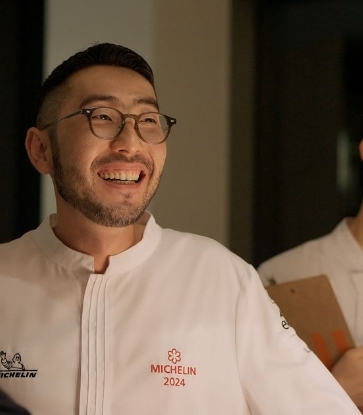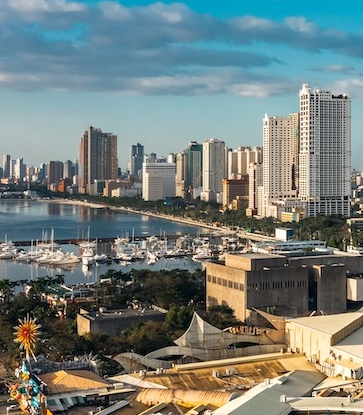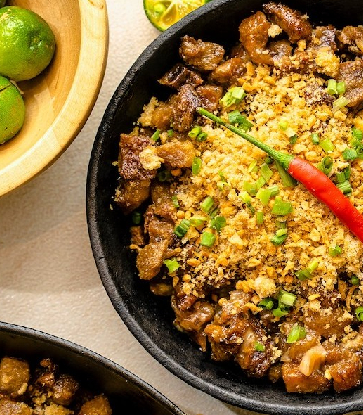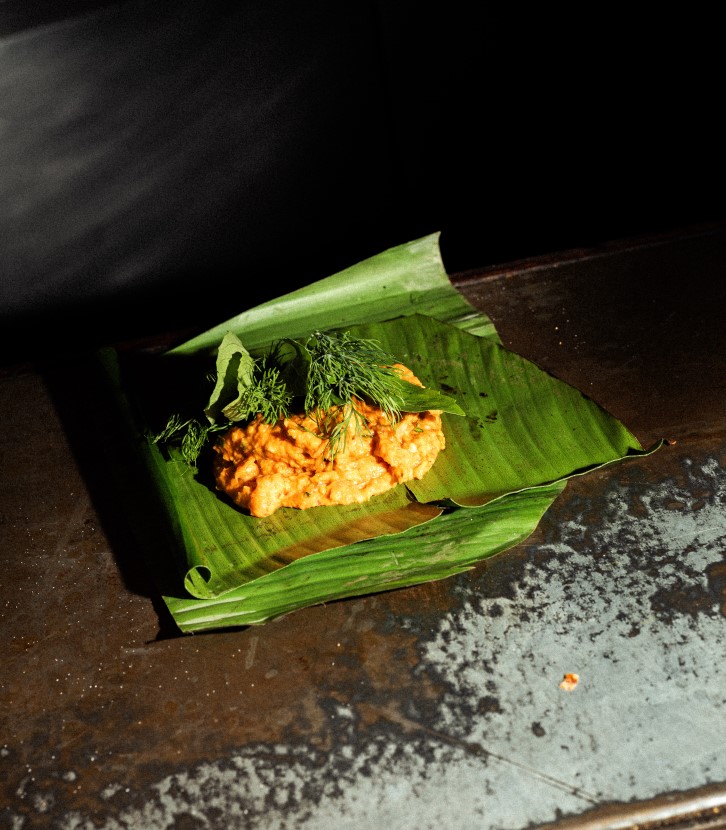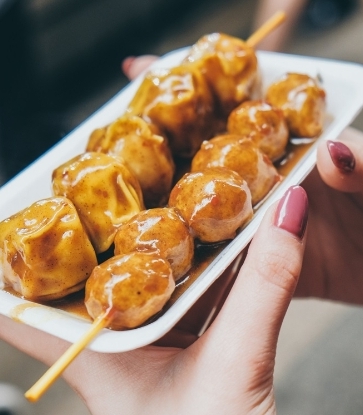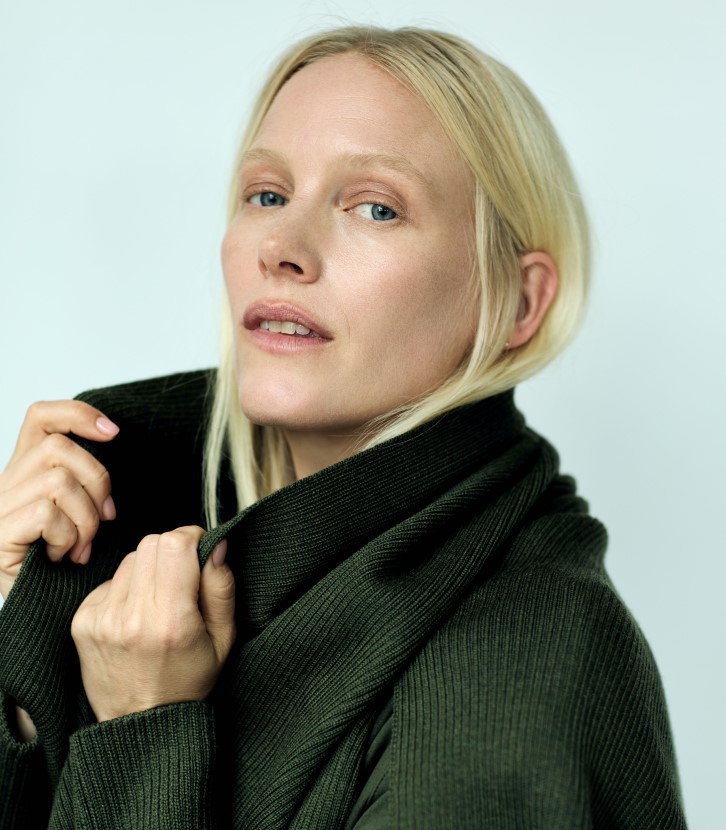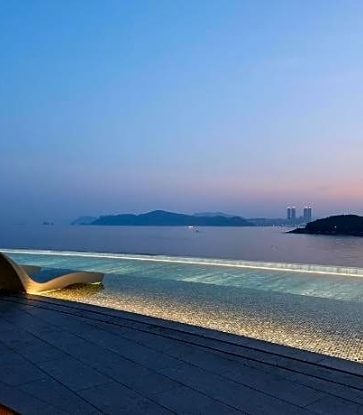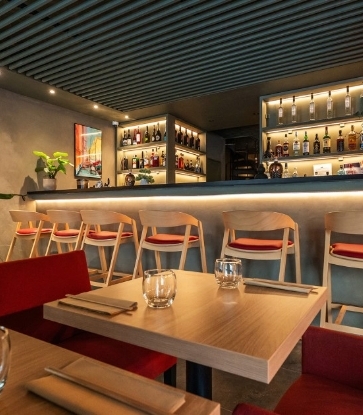Let’s wind the clock back to 2007. There was a young aspiring chef, fresh out of the military and looking to travel abroad to study Western cuisine. He didn’t exactly have a burning passion for cooking, but had always enjoyed building things from scratch. Also, something about molecular gastronomy he had once read about or seen on TV fascinated him.
In the 20 years of his life, he had never eaten anything remotely close to authentic French cuisine. For him, breaded and deep-fried pork cutlets and hamburg steaks doused with sweet gravy and topped with a fried egg constituted the realm of “Western cuisine.”
From the moment he decided to go study abroad, he had only one destination in mind – France. So, he applied to study at the prestigious Le Cordon Bleu Paris, got accepted, and he was on his way to Paris.
Upon arriving in France and experiencing authentic French food for the first time, he realized French gastronomy was so much more awe-inspiring than he’d ever imagined. His first-ever visit to the local market blew his mind. He was stunned by the sheer diversity of ingredients, many of which he had never heard of, much less seen before in his native Korea.
His path to chefdom was hardly easy. The first big obstacle he had to overcome was the language barrier. “My name is Lee Choong Hoo,” he replied when a classmate at Le Cordon Bleu asked him where he was from.
He took things day by day. Thankfully, the vocabulary used in the kitchen was more limited than not, and he slowly started to pick up the language. Working as a student assistant further helped him improve his French skills.
Wanting to learn the ins out outs of classic French cuisine outside of school, he apprenticed for six months at the then-two-Michelin-starred Restaurant Michel Rostang. At the end of his internship, he realized that a less “ritual” modern French cuisine was the genre he wanted to pursue. Through a referral, he landed an apprenticeship at Le Chateaubriand by Iñaki Aizpitarte, a chef he greatly admired. The following three months were a whirlwind. He absorbed as much as he could in the kitchen and loved every minute of it. Not long after, Aizpitarte made him an offer he could not refuse – to join the team at his newly-opening restaurant and wine bar Le Dauphin.
Lee returned to Korea in 2013, armed with his new-found knowledge, skills and plenty of ideas. Zero Complex opened to mixed reviews in July 2014 in Seoraemaeul, an upscale French enclave located south of the Han River. First-time visitors, expecting to find the warm wooden panels and brass accents of a traditional French bistro, were startled by the restaurant’s unconventional décor consisting of spotlessly shiny stainless steel that covered much of the restaurant’s surface. The food wasn’t what the average Korean expected from a French restaurant either. Nothing was conventional.
The chef and his team offer a regularly-changing prix fixe menu with ingredients he personally curates with the help of a local farmer. His food are his thoughts, his emotions and his memories of taste materialized on a plate. Each dish is inspired by his everyday experience—however mundane–that triggers a highly personal emotional response.
Lee Choong Hoo, the youngest chef to receive a Michelin star in the 2017 Seoul guide for his restaurant Zero Complex, tells more in the following interview.

I was both shocked and happy. The food that I make is still perceived as “too esoteric” for the general Korean palate. It often feels like I have a few too many barriers to break down before the people warm up to my food.
I understand, though, because I felt the same way when I experienced French cuisine for the first time. So, receiving the Michelin star was a boost of confidence I needed right when I needed it. As the youngest chef, I felt humbled standing on the stage with all the other great chefs.
What was your impression of French gastronomy when you finally had the chance to experience it?
There was this one dish I had during my early days in Paris, and the experience of it was so shocking and memorable that I reinterpreted it years later and added it to my menu. The dish combined mackerel with beets, rose petals and raspberries.
The mackerel I grew up eating in my hometown of Jinju was either braised, covered in a deep red sauce with chunks of white radish, or simply salted and grilled. So, imagine my surprise when I saw beets and raspberries sitting on the plate with the same fish I grew up eating my whole life! Those differences were what made learning so much fun for me.
In Paris, one could cook haute cuisine at home using the ingredients from the local market. It was so different from Korea.

How did the name ‘Zero Complex’ come about?
The space was conceptualized by my eldest sister who has a background in art directing. She understood exactly what I wanted to serve in my restaurant and, hence, came up with this space. The name we originally had for the restaurant wasn’t even a name; it was basically fourteen zeros all lined up because zero is my sister’s favorite number. But then we realized how silly the idea was. What would people call us by? When the construction was completed, my brother-in-law, who is from the U.K., looked at the space and suggested ‘Zero Complex.’ The name can mean a bunch of things including a collective set of zeros or a space with no design – kind of like a blank canvas. People are more than welcome to interpret the name however they like.
What kind of feedback do you get from customers about the space?
When we first opened, everyone had something to say about it. When people look at stainless steel surfaces, they immediately think of refrigerators and the word “cold.” People come here expecting to see warm wooden surfaces, expecting to be served foie gras and soup, but they see none of that. Whatever preconception they had about us is shattered the moment they walk in.

Food-wise, what did you have in mind when you decided to open the restaurant?
I wanted to create dishes that were edible interpretations of my thoughts and feelings. And that’s what I did; I reflected on the six years I spent in Paris and drew inspiration from my own experience. In hindsight, my food in the early days of Zero Complex was much bolder.
At the moment, I am experimenting with flavors that are exciting yet familiar. For instance, I am Korean and I grew up eating kimchi-jjigae my whole life. My palate is conditioned to appreciate a certain level of sourness in dishes, so I try to apply that taste memory to the French dishes I create in the kitchen. The outcome will be French, but the flavors will trigger a taste memory in the Korean diners to think, ‘Hey, I feel like I’ve had this somewhere before.’
We are seeing more and more classically trained chefs breaking away from convention, making haute cuisine more accessible. The trend is all about reinterpreting the classics with a love of good produce and an artist’s vision and creativity. Is Neo-bistro what you had in mind from the get-go?
Absolutely. The food I am making right now are my own takes on some of the best dishes I experienced in France. From the start, my goal was to make food that is fun, food that excites people.

As a chef, what is your number one priority?
Ingredients. I have a serious obsession with fresh produce. We get all of our produce from a farmer who grows all the vegetables we use at the restaurant. She used to work with fine dining restaurants in the United States and is highly experienced and knowledgeable.
I visit the farm in Yeoju every Monday. If I go to the market and say to the vendor, “What is wrong with the taste of this carrot?” everyone would think I am crazy. But working closely with the very person who grows all the fresh produce I cook with means there is a mutual understanding and constant communication. We discuss ideas all the time and that is the key to producing the best ingredients. For me, visiting the farm every week constitutes a huge part of the creative process.

Why this obsession with ingredients?
A great-tasting carrot is amazing just on its own. Some diners say they enjoy watching the way I interpret the ingredients. For me, cooking is pretty straightforward. I use the best ingredients I can find to make the kind of food I want to eat. Of course, someone who can create something tasty out of ordinary ingredients in the fridge is also a good cook. But what makes a great chef is his or her ability to think outside the box and use ingredients that are a little out of the ordinary. But that’s just me and I’m not sure if there’s a right or wrong way to cook good food.
A fair share of your clientele are foreigners. What do they say about your food?
We have a number of French expats who frequent the restaurant and they really enjoy the experience. Classic French dishes are something they can make at home, but the food we serve here is a little different; it’s whimsical, made with ingredients that are not your everyday grocery store produce. I think that’s why they appreciate us and are so supportive of us.

Where do you draw inspiration from?
My friends call me “the human shark.” There isn’t anything I will not eat with gusto. Naturally, I’m often inspired by what I eat.
For instance, the endive and caramel mousse dish we serve at the restaurant was put together by sheer chance. I was in the kitchen one day and there was a bowl of endives and some caramel sauce we had prepared for dessert. I munched on an endive leaf and went on to taste the caramel sauce and the flavor combination was amazing. That’s how I often get ideas.
I rely a lot on my memory to create food. A few days ago, I ordered kimchi-jjigae at a restaurant. The type of kimchi-jjigae that I like is a lighter version without too much pork or fatty protein. The jjigae I ordered that day had a noticeable film of oil floating on top and it looked really greasy. I tasted it and was surprised to find it didn’t taste oily at all. Taste memory like that helps me gauge the amount of fat I can add to broths and sauces without going overboard.
What is your favorite food?
My mom’s tteokguk (rice cake soup). She wanted to make something special for her son visiting home for the first time in a while, so she made tteokguk with every ingredient she could get her hands on. The soup had beef in it as well as a bunch of seafood. It was so good. That is the kind of food I really enjoy eating – food made with love that makes you feel all warm inside. That is why memory is such an important source of inspiration for me.

Then, what is something you make that your mother really enjoys eating?
She doesn’t really like my food (laughs). Her taste buds are not used to Western flavors; she says the herbs taste like perfume.
I believe that taste buds can be conditioned, just like everything else in life. If you experience something enough times, your brain remembers it. Your taste buds can warm up to flavors you didn’t enjoy before. My mom just needs more practice.
Is there a dish you have yet to try making that you really want to make in the future?
Like any other chef, I am always trying to be better at what I do. I personally want to create the simplest dish in the world using the best produce. And I want it to taste out of this world.
Published 2017.02.22




